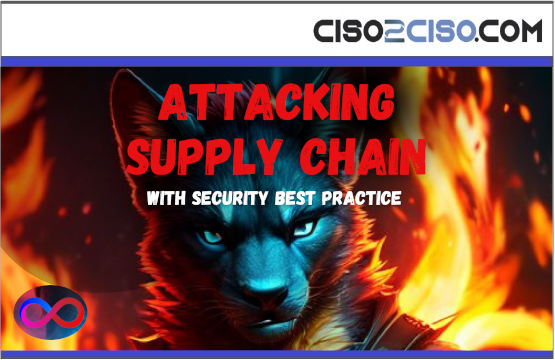In today’s rapidly evolving technological landscape, DevOps practices have transformed software development and deployment by emphasizing collaboration, automation, and continuous integration/continuous deployment (CI/CD). However, the interconnected nature of DevOps also introduces vulnerabilities that threat actors exploit, particularly in the supply chain. The supply chain includes tools, libraries, and dependencies crucial to the DevOps environment, making it a prime target for attackers looking to compromise systems downstream.
Attacks on the supply chain involve injecting malicious code into open-source libraries, tampering with container images, compromising build pipelines, and manipulating software dependencies. These attacks can lead to the distribution of malware, data breaches, and the compromise of critical infrastructure. As DevOps environments prioritize speed and automation, detecting such attacks can be challenging, necessitating robust security measures throughout the software development lifecycle.
Various tactics are employed by threat actors, such as exploiting vulnerabilities in third-party components, compromising build pipelines, or conducting attacks upstream in the supply chain. The document outlines specific attack scenarios, such as code injection via Git repositories, compromise via CI/CD pipelines, Infrastructure as Code (IaC) injection, and manipulation of source code in open-source dependencies.
Additionally, the document discusses real case examples of supply chain attacks, including NotPetya and SolarWinds incidents, criminal gangs, and state-sponsored attackers targeting DevOps pipelines. It highlights weak security practices, exposed Jenkins instances, and the focus on open-source software supply chains by attackers. Mitigation strategies are also provided, emphasizing the importance of proactive security measures to safeguard systems, data, and reputation.
Furthermore, the document lists the top 20 DevOps supply chain services, including Azure DevOps, Jenkins, GitLab CI/CD, AWS CodePipeline, Google Cloud Build, and others. It delves into supply chain attacks targeting specific services like Ansible Galaxy and Docker Hub Registry, detailing how threat actors compromise these suppliers to inject malicious code into automation processes.
Overall, the document underscores the critical need for organizations to understand the intricacies of the DevOps supply chain, implement robust security measures, and adopt proactive strategies to mitigate the risks posed by supply chain attacks. By recognizing the significance of the supply chain in DevOps and prioritizing security, businesses can better protect their systems, data, and reputation in the face of evolving cyber threats.
Views: 4




















































